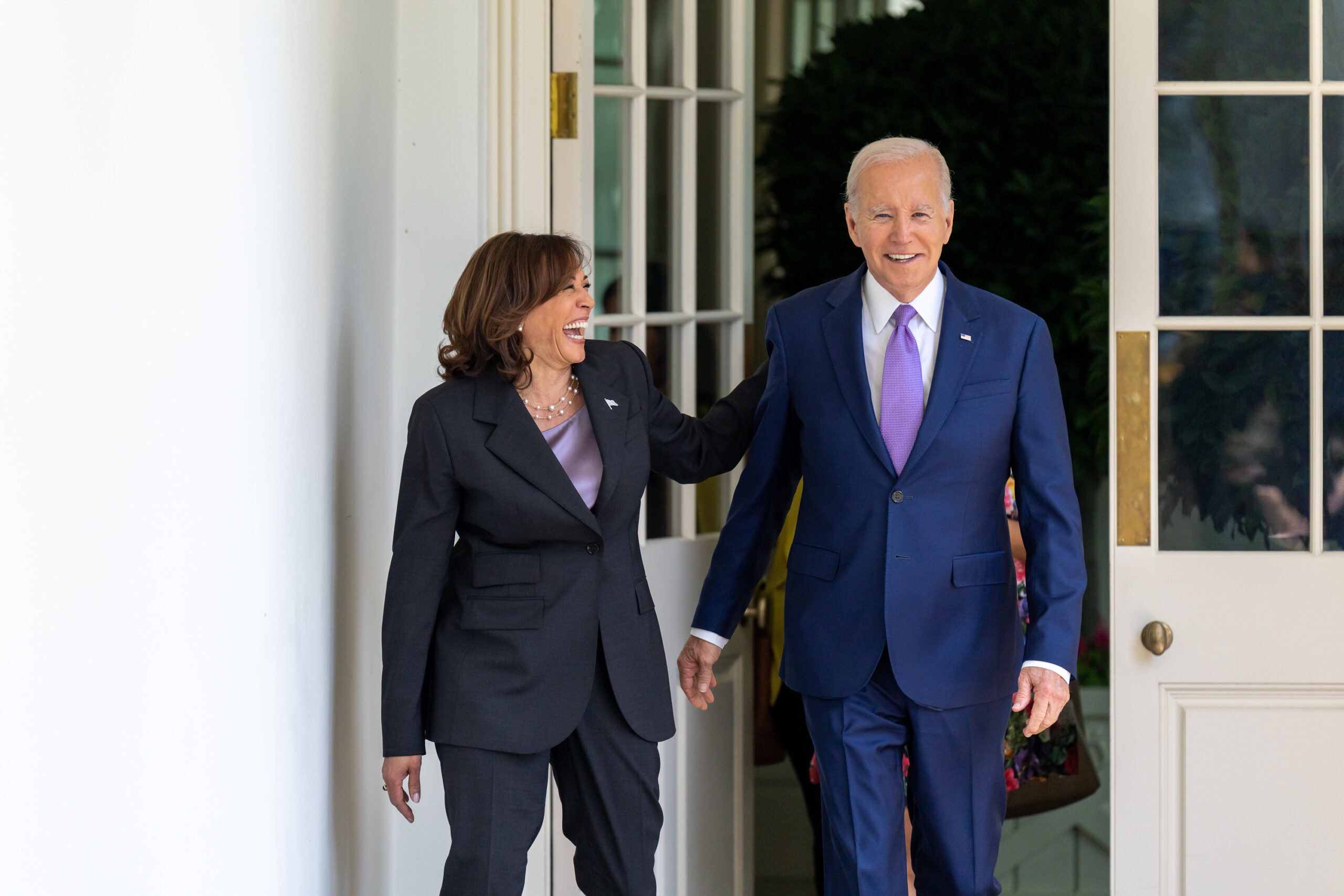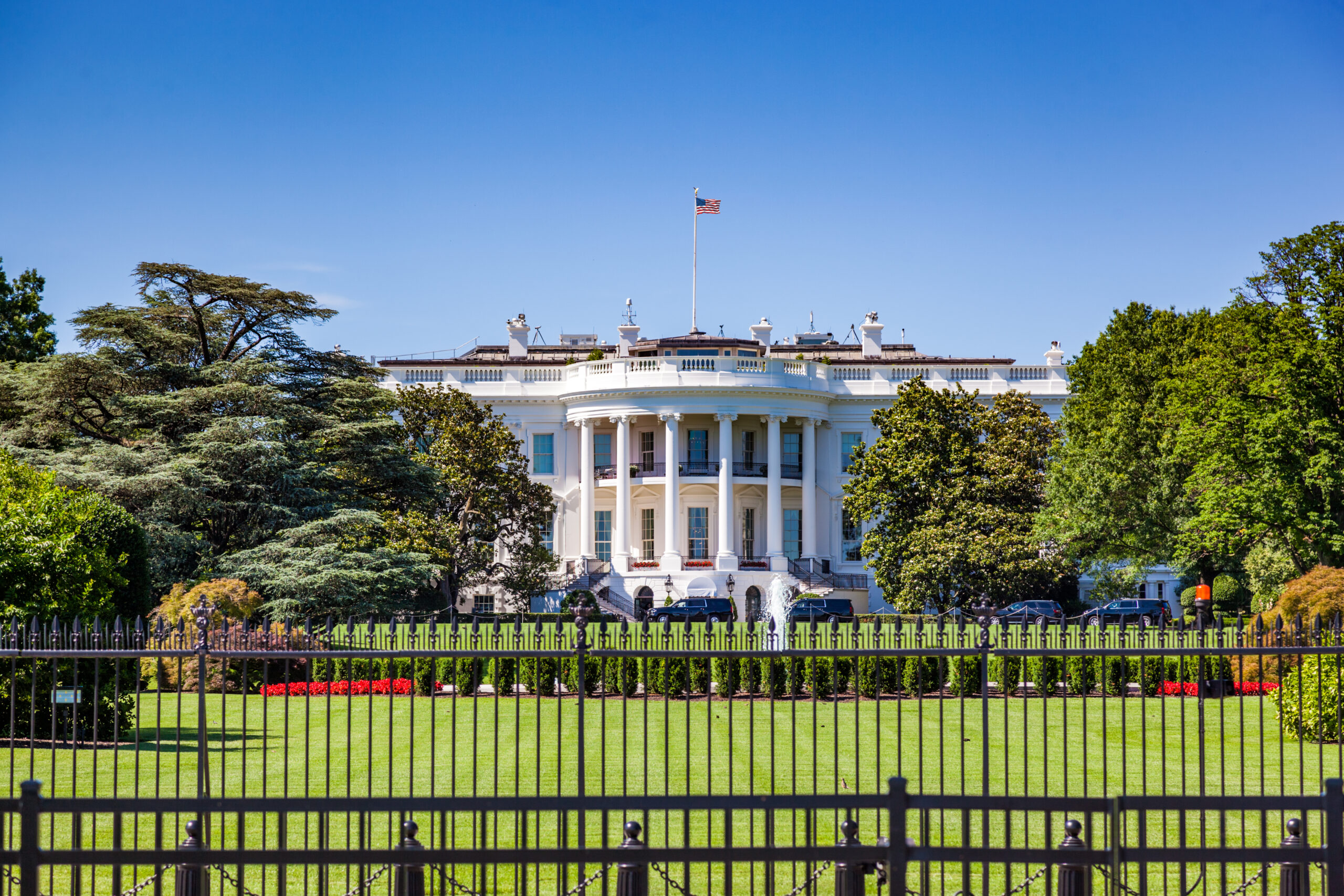
While Republicans Vow to Ban Medicare from Negotiating, Democrats Deliver Lower Drug Prices
Today, the Biden-Harris administration announced the new, lower prices for 10 of the highest-cost, most popular drugs taken by people on Medicare. These new prices are the highest prices drug companies can charge for these lifesaving medications – all made possible through the historic Inflation Reduction Act, passed by Democrats in Congress and the Biden-Harris administration in 2022, which gave Medicare the power to negotiate lower drug prices with manufacturers for the first time in history.
This announcement follows a long line of actions the Biden-Harris administration has taken to reduce prescription drug and health care costs for the American people. The Inflation Reduction Act also lowered drug prices for millions of seniors by capping insulin costs at $35 per month, limiting outrageous price hikes, and making recommended vaccines like shingles free for people on Medicare. And starting in 2025, total out-of-pocket drug costs will be capped at $2,000 per year for seniors. In 2023, 10 million seniors received a free vaccine, and HHS estimates that 19 million seniors will save $400 or more per year thanks to the out-of-pocket cap.
At the same time, Donald Trump and Republicans in Congress are fighting to roll back this progress and repeal the Inflation Reduction Act’s historic measures to lower drug prices for seniors. Just weeks after Trump’s inauguration in 2017, he dropped his promise to negotiate drug prices after meeting with big drug company lobbyists. Now, he wants to ban Medicare from negotiating down prices for millions of Americans. Repealing these policies would cost seniors billions of dollars — only putting money back in the pockets of big drug companies.
BY THE NUMBERS
- In the first year alone, these newly lowered prices will save seniors $1.5 billion in out-of-pocket costs and will save taxpayers $6 billion.
- The Medicare Drug Price Negotiation will slash the list prices of the first ten drugs by 38–79 percent.
- The first ten drugs selected are taken by nearly 9 million people on Medicare, who spent $3.9 billion in out-of-pocket costs in 2023 alone.
- Drug companies routinely charge Americans up to eight times more than patients in other countries for the same prescriptions.
HEADLINES
The Washington Post: Medicare Negotiations With Drug Companies Saved $6 Billion, Democrats Say.
- “A year-long effort to negotiate with pharmaceutical companies over some of the priciest drugs used by older Americans has resulted in about $6 billion in initial savings, Biden administration officials told reporters, with implications for many patients’ out-of-pocket spending. The new, negotiated prices ranged from 38 to 79 percent lower compared with the drugs’ list prices in 2023. […] For nine of the drugs, the negotiations help cut the price by more than 50 percent, officials said.”
- “Democrats and their allies are heralding the initiative as a crowning achievement after years of battling with the pharmaceutical industry. The initiative is set to be scaled up, with Medicare planning to target 15 additional drugs for negotiations in 2025 and 2026, and 20 drugs a year subsequently.”
- “‘The Biden-Harris administration and Democrats in Congress stood up to the greed of big drug companies and won,’ Leslie Dach, the chair of Protect Our Care, a Democratic-aligned group, said in a statement. ‘Now, prices will come down for millions of seniors.’”
Rolling Stone: Dems Prove What Other Countries Know: Negotiating Drug Prices Works.
- “Congress for decades prohibited Medicare from negotiating drug prices, something that virtually all other countries do. It’s a chief reason why drug prices are two to four times higher in the United States than in other wealthy countries. The negotiated price list released by the administration on Thursday shows what Americans have been missing out on: Medicare will pay less than half of the current list prices on nine of the first 10 drugs that were included in the program.”
- “The basic reality is that Americans have been forced to pay the world’s highest prices for lifesaving products they helped finance. This status quo remains, but under Biden, Democrats finally fulfilled their longtime pledge to allow Medicare to negotiate drug prices. Some conservative Democrats helped water down the provision — limiting the number and types of drugs that would be subject to negotiation, and who will benefit — but the program’s successful inclusion as part of the 2022 Inflation Reduction Act was historic — and it opens the door to further expansions down the line.”
The New York Times: U.S. Announces Prices for First Drugs Picked for Medicare Negotiations.
- “The prices of the drugs, which include widely used blood thinners and arthritis medications, will take effect in 2026. They represent the first time that the federal government has directly negotiated with drugmakers on behalf of Medicare beneficiaries, and will reshape the federal government’s role in a program that covers tens of millions of older and disabled Americans.”
- “The prices the Biden administration announced were made possible by the Inflation Reduction Act, a climate, health and tax bill signed by Mr. Biden in 2022 that granted the health and human services secretary the authority to negotiate on behalf of Medicare. The law delivered more immediate benefits to the program’s beneficiaries, including a $35 monthly cap on out-of-pocket costs for insulin, and a $2,000 annual cap on patient costs for drugs taken at home. The $2,000 limit will go into effect next year.”
- “The selected drugs account for some of the highest Medicare spending, have been on the market for years and do not face competition. Medicare officials are not required to publish explanations of how the federal government arrived at the negotiated prices until March. The number of drugs negotiated by the federal government is set to increase in the coming years. President Biden has called for Medicare to negotiate the prices of 500 drugs over the next decade.”
NPR: Medicare Negotiated Drug Prices For The First Time. Here’s What It Got.
- “The White House unveiled the fruits of months of negotiations between the government and pharmaceutical companies: new, lower Medicare prices for 10 blockbuster drugs. The discounts range from 79% for diabetes drug Januvia to 38% for blood cancer drug Imbruvica. If the negotiated prices were in effect in 2023, Medicare would have saved $6 billion and beneficiaries would have saved $1.5 billion in out-of-pocket costs, such as copays at the pharmacy counter. That’s what officials say they expect to save in the first year the prices are in effect.”
- “It’s expected Medicare drug price negotiations will save the government $98.5 billion over a decade, according to the Congressional Budget Office, which scored the Inflation Reduction Act.”
- “The pharmaceutical industry has pushed back against the negotiations, filing several lawsuits to keep the negotiated prices from going into effect and saying the move will be bad for drug innovation. However, the CBO estimates that the Inflation Reduction Act will prevent 13 new drugs from coming to market over the next 30 years out of the 1,300 of them that are expected to come to market over that time. Over the past few weeks, several drug companies involved in this round of negotiations told their investors they are able to manage the losses from lower Medicare prices.”
STAT: Medicare Announces Drug Prices For Historic First Round Of Negotiations.
- “Medicare officials on Thursday unveiled the results of the program’s first 10 drug price negotiations, despite the industry’s two-decade, multimillion-dollar lobbying campaign and barrage of lawsuits to stop them.”
- “Several drugmakers and their allies have challenged the law as unconstitutional in court, though the pharmaceutical industry’s side has lost every ruling so far. Many of the cases are still in process, either waiting on a ruling or working their way through the appeals process. […] In the meantime, drugmakers have largely painted a rosy picture to investors about being able to manage the effects of the negotiation program to their bottom lines, though they warn of a downstream impact in the future.”
CNBC: Biden Administration Releases Prices Of 10 Drugs In Medicare Negotiations, Says Us Will Save $6 Billion In First Year.
- “The Biden administration on Thursday released prices for the first 10 prescription drugs that were subject to landmark negotiations between drugmakers and Medicare, a milestone in a controversial process that aims to make costly medications more affordable for older Americans. The government estimates that the new negotiated prices for the medications will lead to around $6 billion in net savings for the Medicare program in 2026 alone when they officially go into effect, or 22% net savings overall. That is based on the estimated savings the prices would have produced if they were in effect in 2023, senior administration officials told reporters on Wednesday. The Biden administration also expects the new prices to save Medicare enrollees $1.5 billion in out-of-pocket costs in 2026 alone.”
- “The negotiations are the centerpiece of the Biden administration’s efforts to rein in the rising cost of medications in the U.S. Some congressional Democrats and consumer advocates have long pushed for the change, as many seniors around the country struggle to afford care. The price talks are expected to save money for people enrolled in Medicare, who take an average of four to five prescription drugs a month. Almost 10% of Medicare enrollees ages 65 and older, and 20% of those under 65, report challenges in affording drugs, a senior administration official told reporters last year.”
The Hill: Medicare Talks To Yield $6B In Savings.
- “The first round of Medicare drug price negotiations will save an estimated $6 billion, according to the Biden administration. Six months of negotiations for the first 10 drugs chosen by the program ended on Aug. 1 and agreements were reached for all of the medications according to White House officials.”
- “From that amount, Medicare enrollees are projected to save $1.5 billion when the prices go into effect in 2026. The drugs were chosen for being among the highest total Part D gross covered prescription drug costs, an estimated $50.5 billion. The medications that were chosen treat conditions like heart failure, diabetes, rheumatoid arthritis and blood cancers.”
CNN: Medicare And Its Enrollees To Save Billions From Historic Drug Price Negotiations, Biden Administration Says.
- “The $6 billion in savings for Medicare represents a 22% reduction in total net spending on the medications, which factors in the rebates and discounts. Officials cannot provide details about the net cost cuts for each medicine since it is competitive information. The initial round of negotiations with drugmakers – who have been trying, unsuccessfully so far, to quash the program in federal court – focused on the most widely used and expensive drugs taken by Medicare enrollees. The medications are Eliquis, Jardiance, Xarelto, Januvia, Farxiga, Entresto, Enbrel, Imbruvica and Stelara, as well as Fiasp and certain other insulins made by Novo Nordisk, including NovoLog.”
- “The $6 billion in savings estimate is based on Medicare’s 2023 cost for these drugs, Chiquita Brooks-LaSure, administrator of the Centers for Medicare and Medicaid Services, told reporters. The Congressional Budget Office has estimated that the negotiation program will save Medicare $100 billion over a decade. Many of the millions of Medicare enrollees who take the drugs subject to negotiation will see savings at the pharmacy counter, though it will depend on their Medicare Part D drug coverage, said Spencer Perlman, director of health care research at Veda Partners, a policy consulting firm for institutional investors. For many, medication costs are typically based on drugs’ list prices – before the rebates and discounts to the Part D plans – and those prices will be lower due to the program.”
Forbes: Biden Administration Strikes Deal To Cut Cost Of Expensive Medicare Drugs.
- “In [a] statement released by the White House, President Joe Biden said [the] deal would result in $6 billion in savings for the taxpayer. The renegotiated prices will also lead to $1.5 billion in cumulative savings in out-of-pocket spending for medicare enrollees, the White House said. The deal covers 10 key drugs used to manage or treat diabetes, heart failure, blood clots, arthritis and blood cancers. In an accompanying statement, Vice President Kamala Harris called the announcement ‘lifechanging’ for many people and said additional prescription drugs will be selected each year ‘as part of our Medicare drug price negotiation program.’ Up to 15 additional Medicare drugs will be up for negotiation in 2025, followed by another 15 in 2026 and ‘up to 20 drugs every year after that,’ Harris said.”
The Associated Press: White House Says Deals Struck To Cut Prices Of Popular Medicare Drugs That Cost $50 Billion Yearly.
- “The Biden administration said Thursday that drug price negotiations will knock hundreds of dollars — in some cases thousands — off the list prices of 10 of Medicare’s most popular and costliest drugs. The discounts, agreed to after months of negotiations with drug manufacturers, range between 38% and 79% on the medication’s list price…”
- “Medicare spent $50 billion covering the drugs last year and taxpayers are expected to save $6 billion on the new prices, which do not go into effect until 2026. Older adults could save as much as $1.5 billion in total on their medications in out-of-pocket costs. Administration officials released few details about how they arrived at those calculations. The newly negotiated prices will impact the price of drugs used by millions of older Americans to help manage diabetes, blood cancers and prevent heart failure or blood clots. The drugs include the blood thinners Xarelto and Eliquis and diabetes drugs Jardiance and Januvia.”
Roll Call: CMS Announces Medicare Prices For First Negotiated Drugs.
- “The Biden administration announced Thursday that it has reached an agreement with drug manufacturers for all 10 high-cost drugs it entered into negotiations earlier this year, a major step in the implementation of the president’s drug pricing law. The long-awaited announcement marks the first time Medicare will set the prices it pays for Part D prescription drugs as laid out by a law passed by Congress in 2022.”
- “The Congressional Budget Office had predicted some $98.5 billion savings through fiscal 2031, with $3.7 billion in the savings in the first year alone.”
Healthcare Finance: Administration Reaches Negotiation Agreement On 10 Drugs.
- “In a bid to lower prescription drug prices, the Biden administration this week reached an agreement for new, lower prices for the 10 drugs selected for negotiations. These drugs, the White House said, are some of the most expensive and most frequently dispensed drugs in the Medicare program and are used to treat conditions such as heart disease, diabetes and cancer. The new prices will go into effect for people with Medicare Part D prescription drug coverage beginning January 1, 2026.”
- “As a hypothetical example, a senior with Medicare who takes Stelara pays a 25% coinsurance on the drug, which may amount to about $3,400 today for a 30-day supply. When the negotiated price goes into effect in 2026, CMS said that the same 25% coinsurance would cost the beneficiary about $1,100 before the person reaches the catastrophic cap, after which the beneficiary will pay no more out of pocket on their prescription drugs. A beneficiary’s actual costs will depend on their plan’s benefit design, the agency said.”
- “The selected drugs accounted for $56.2 billion in total Medicare spending, or about 20% of total Part D gross spending in 2023. Overall, CMS said total Part D gross spending for the 10 selected drugs more than doubled from 2018 to 2022, from about $20 billion to about $46 billion, an increase of 134%. Medicare enrollees paid a total of $3.4 billion in out-of-pocket costs in 2022 for these drugs. The Office of the Assistant Secretary for Planning and Evaluation (ASPE) also released new data detailing historic pricing trends of the 10 drugs selected for the first cycle of the negotiation program. The report finds that from 2018 to 2023, list prices increased as much as 55%.”
Fierce Pharma: IRA Negotiations Slash Medicare Prices For Big Pharma Blockbusters By Up To 79%.
- “The White House has revealed significantly reduced prices for 10 prescription drugs affected by the first wave of Medicare negotiations mandated by the Inflation Reduction Act (IRA), the Biden administration initiative that includes several measures designed to lower the cost of healthcare in the U.S. The reductions were sharp, with list prices for all but one of the 10 medicines sliced by at least 50%.”
- “Starting in 2027, the negotiation process will expand to another 15 drugs, with more to come in subsequent years. From the outset of the IRA’s passage into law, the pharma industry has attempted to fight back against the legislation tooth and nail, with Pfizer CEO Albert Bourla, Ph.D., at one point even referring to the Medicare pricing talks as ‘negotiation with a gun to your head.’ […] Since the bill was passed—and the companies affected by the first round of pricing negotiations were made known—major pharma outfits have repeatedly tried, and failed, to challenge the constitutionality of the IRA in court.”






